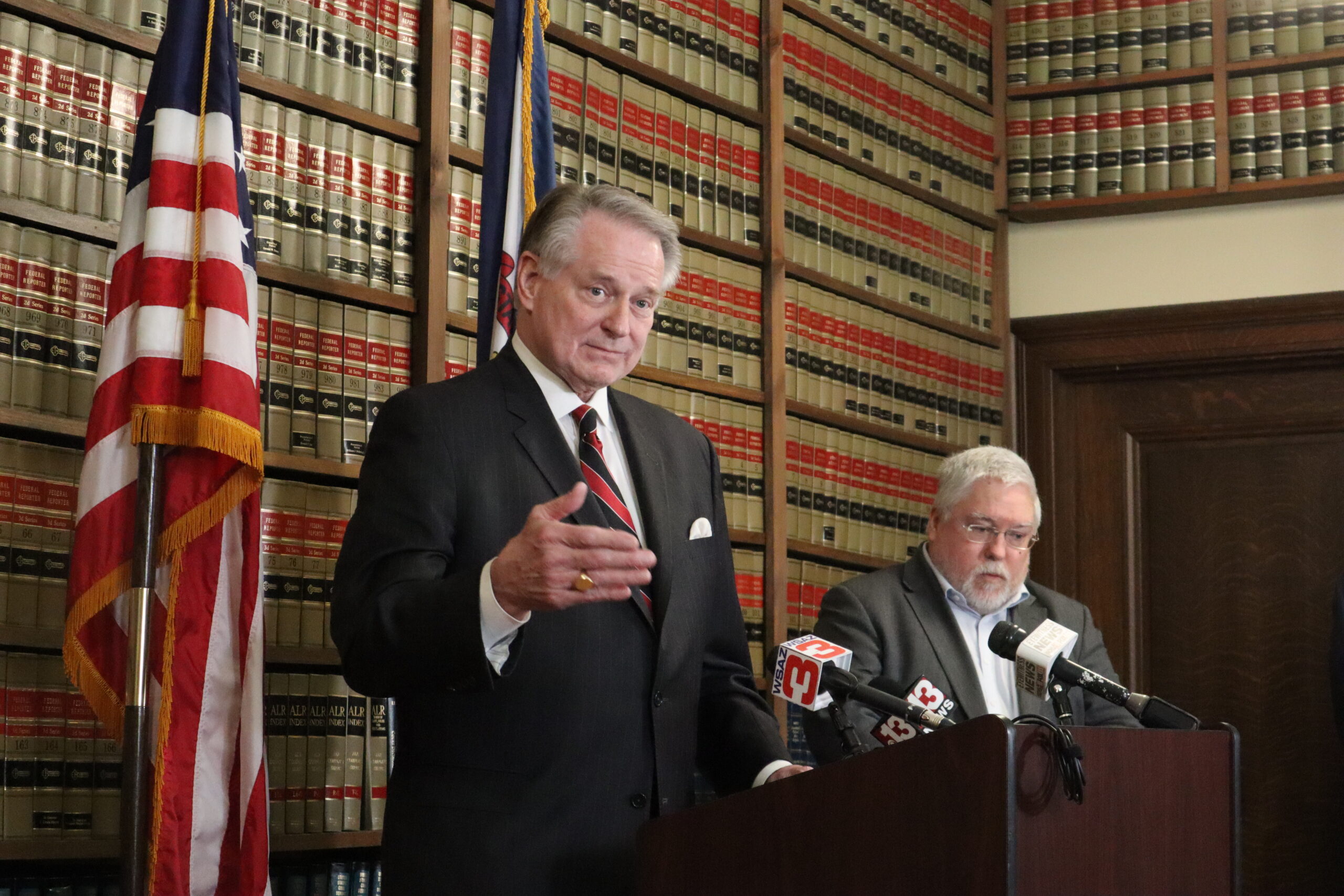
Huntington Mayor Steve Williams (L) and Attorney General Patrick Morrisey (AP Photo/Leah M. Willingham)
West Virginia judge rules in favor of drug distributors in opioid suit
Three major drug distributors are off the hook for what may have been a $2.5 billion payment after a federal judge found them not liable …
Sign up to read this article for free.
Get free access to a limited number of articles, plus choose newsletters to get straight to your inbox.